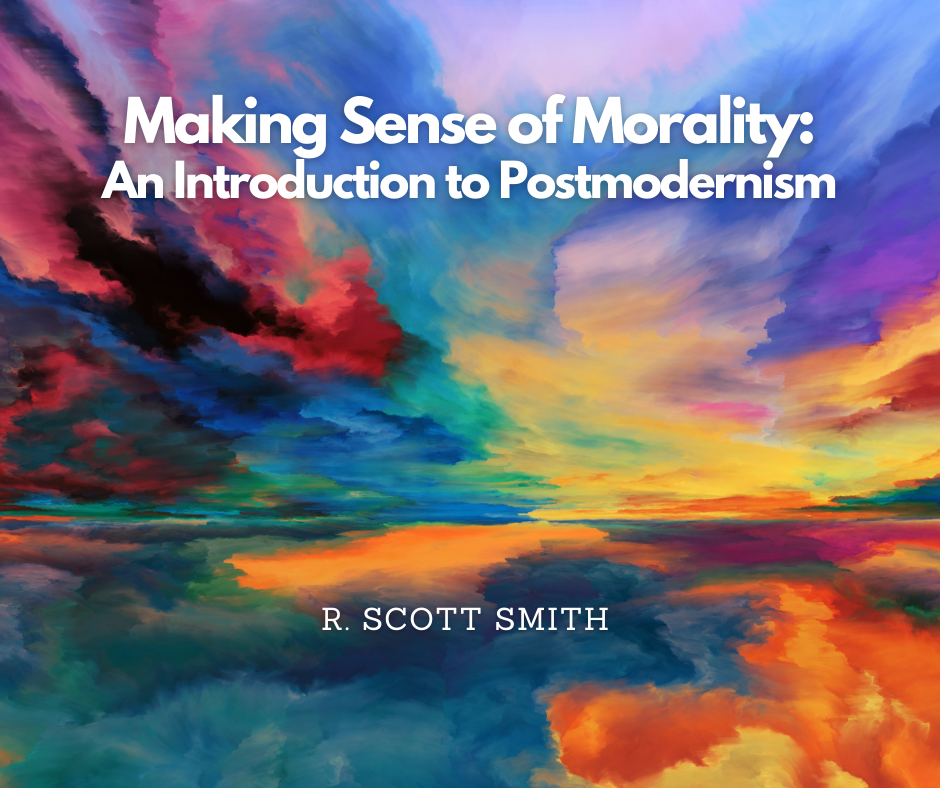Making Sense of Morality: Christine Korsgaard’s Naturalistic Ethics
/Editor’s note: R. Scott Smith has graciously allowed us to republish his series, “Making Sense of Morality.” You can find the original post here.
Introduction
Now I will turn away from analyzing naturalistic, ethical options in terms of noncognitivism and cognitivism. Here, I will explore the views of a few individuals, starting with Christine Korsgaard (b. 1952).
Korsgaard’s Kantian Ethics
Like Mackie, Korsgaard rejects objectively real, intrinsically moral properties as very “queer.” Instead, the world is made of matter. How then does she derive ethical prescriptions?
She thinks that apart from our valuing something or some action, there is no value in the world. We do this by imposing our reason onto the material world. For her, this is like what Kant taught us, that we are to will what should be universally the case (i.e., by acting autonomously). This is an exercise of our practical reason.
One basis for her move is she thinks that if, like Plato thought, objectively real, intrinsically moral properties exist, then it is hard to see why they should have anything to do with us, since we are material. In that case, why should a person be moral? I think this is a good concern with Plato’s own views, to which I will return much later.
Instead, she thinks the only way we can secure our obligation to be moral in light of naturalism is by imposing reason onto reality (i.e., matter). By using practical reason, we self-legislate and construct our moral norms. These practical reasons exist and are prescriptive. We construct them by reason and universalize them by following Kant’s categorical imperative.
How do we go about forming these reasons? Korsgaard thinks it occurs as we are guided by our various practical identities. Such identities are descriptions according to which people find their lives to be worth living, and their actions worthwhile. By treating our human identity as normative, we regard it as a source of reasons and obligations, which she labels a moral identity. Then, ourmoral identity yields universal obligations, and that makes us, like Kant thought, members of the kingdom of ends. That is, we should always should be treated as valuable in ourselves, and not merely as a means to some end.
Assessment
If naturalism is true, then Korsgaard’s ethics makes much sense. There are no intrinsic morals in a naturalistic world. Yet, we do experience the importance of morality, and it seems that morality would have to be a construct of some sort. She clearly recognizes this, and her appeal to Kant fits well with her project. Moreover, she is right that our practical reasons exist and are normative. They are real, even though they do not exist independently of us.
Now, moral normativity depends upon us and our being able to use practical reason. Three issues arise here. First, what if some humans are unable to use their reason adequately, or at all? Would they thereby become disqualified from being valued in themselves? Also, who decides if they can reason “adequately”? Second, what if some do not see their lives as worth living? Does that also disqualify them from being valued in themselves? If so, may they be discarded or actively euthanized? Third, Korsgaard assumes we can reason on naturalism. Yet, later, I will examine to see if that is so.
Korsgaard could reply that there is a safeguard based upon the universalizability principle. We should will what we want to be normative and universal for all. But, this could be misused, it seems. For example, all persons should be treated with dignity seems very universalizable. Yet, then a separate, descriptive matter arises, to which all may not universally agree: are all humans persons? If not, some humans could be treated as means to an end due to a nonmoral decision. That is, her criterion of universalizability may not be sufficient to prevent abuses.
Further, Korsgaard’s proposal depends upon our treating ourselves as valuable. But, why should we, if we know naturalism is true? We can play that “game,” and if we live in affluent conditions, that might seem satisfactory. But, for those in oppressive conditions, that “game” could become unbearable.
For Further Reading
Christine Korsgaard, The Sources of Normativity
R. Scott Smith, In Search of Moral Knowledge, ch. 7
R. Scott Smith is a Christian philosopher and apologist, with special interests in ethics, knowledge, and seeing the body of Christ live in the fullness of the Spirit and truth.





















